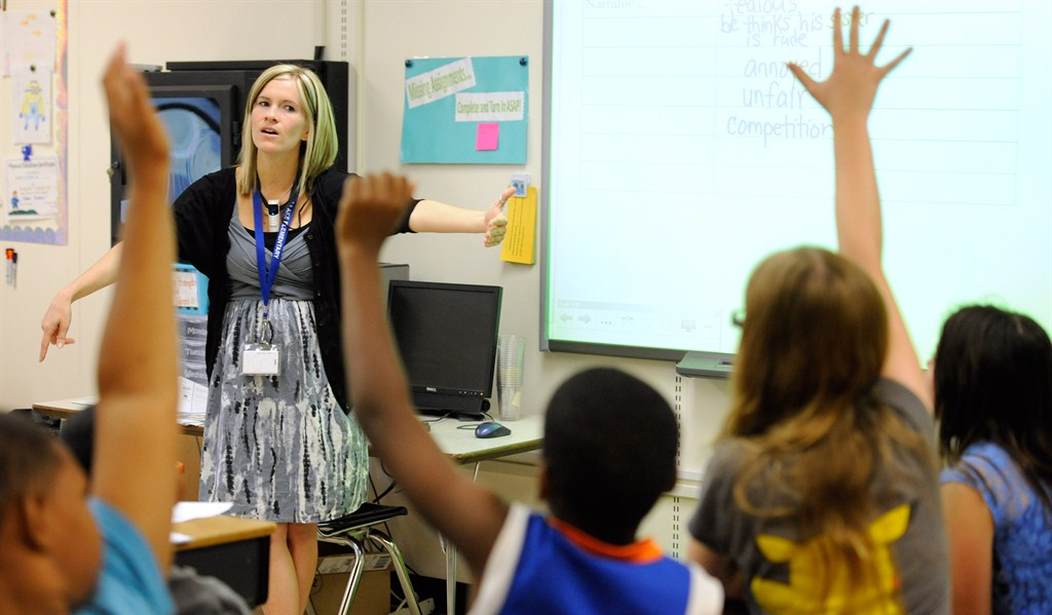Any people is known by and knows itself through its stories. In addition to the true story of its existence—its history—there are stories that technically never happened. While these stories get assigned to the “fiction” section of the library, that does not mean they are not true—at least true to nature. The myths, parables, poems, plays, novels, and, occasionally, epics—that are given the high name of literature—are the vehicles through which the greatest observers of human nature explain that human world to their fellow human beings. Through stories we learn about the struggles and longings, the triumphs and defeats, of ordinary men and women. We learn about the human virtues and their opposite vices. We discover the sources and meaning of love, justice, freedom, and happiness, as well as of hatred, injustice, slavery, and ruin.
In a sane world, any flourishing people has sense enough to teach its best stories to its youngest people. It does so for several reasons. Stories inculcate civility and the virtues, which any people wishes to pass on to its young. Stories unveil the permanent truths of human life—that do not change with every innovation in technology or swing of political mood. Best of all, great stories are irresistible since they invite the human imagination to embark upon adventures and encounters that never grow old: to fight alongside a warrior named Achilles, to feel for a young woman in love named Elizabeth, and to float down a river with a boy named Huck.
No sensible people deliberately forgets its stories. In fact, it would take a deliberate, premeditated act to forget them. Stories are a substantial part of any culture: the agency that cultivates the human soul and teaches a people how to think and feel. A people setting aside its stories would be tantamount to a person deliberately choosing amnesia: deciding not to know who he is or where he comes from, who his friends are and, if he has any, who his enemies. Who would ever do such a thing?
Great peoples have great stories. The Greeks had Homer. The Romans had Virgil. It has been the singular fortune of the American people to be able to draw our stories from the vast literary reservoir of two great peoples, the British and the American, who share a common language—a great language, made greater by its masterful storytellers. We in America have as much access and right to the soliloquies of Hamlet, the struggles of Crusoe, and the letter of Mr. Darcy as anyone who lives in London or studies at Oxford. And in return, this literary nation has given our British brethren the creations of Melville and Poe and Twain.
Recommended
Given these fundamental truths of education, we would expect children and young people in America to know the great stories of the British and American tradition almost as well as they know their own families and friends. We would expect the name Lady Macbeth to come up in conversation more than, say, Kardashian. We would expect the lines following the words “To be or not to be” to be at least as well known as the words following “If you like it, then you shoulda putta ring on it.” Given the human mind’s love for stories, we would expect virtually everyone’s speech, especially that of children, to be awash with literary allusions and lines from the greatest tales of romance and adventure. And if that weren’t happening, we would know something had gone wrong with our education and our culture.
To right that wrong, educated and public-spirited people would come together to get the great stories back into the nation’s classrooms. They might rally around a common core of the greatest books and plays and poems. The discussion of these reform-minded folk would become heated around one central question: how can we fit in everything that is noble and beautiful and true and still do justice to these stories that can’t just be ripped through in a day? “We’ve got to have the students read Hamlet and Macbeth, but, oh, is there any way to get to Othello and Henry V and Lear?!” “Yes, Moby Dick will take at least two months to read and discuss thoroughly. Yes, it’s challenging. But it is the great American novel. We can’t let students out of high school without knowing it!” Above all, we would expect certain august names in the literary canon to appear whenever and wherever literature was discussed: Chaucer, Shakespeare, Milton, Austen, Dickens, Hawthorne, Melville, Poe, Twain.
What we would not expect is educational “experts” trying to take our great stories away from us and to do so in the name of a common core. We would not expect them to chop up the great books into thin slices so as to make room for modern, untested authors who may be all the rage one day and gone tomorrow. The last thing we would expect the reformers to do is take away classic literature and replace it with a bunch of newspaper or journal articles from just a few months ago. Such preposterous “reforms” would either be laughed out of court as an absurd surrender of our literary birthright or prosecuted as an attack on the human imagination.
And yet that is precisely what has been done through the monstrosity that is woefully misnamed the Common Core. In crafting their English Standards, the architects of the Common Core have committed three cardinal sins, all which undermine the teaching of great stories. They have required that great literature give way to modern “informational texts.” They have required the teaching of post-modern, usually multicultural, mush in each “grade-band” (which in practice translates into every year), thus further supplanting the classics. And through the specter of standardized testing and the selling out of the curriculum to the publishing houses, they have allowed the textbooks to balkanize and anthologize whatever great literature remains until it is utterly unrecognizable.
Let us take one example: Charles Dickens. It doesn’t take a Ph.D. in literature to know that Dickens should be read in an English class. All you have to do is look around, particularly this time of year. How many references to Scrooge do you hear? How many times will you hear the unique and instantly recognizable vocabulary of Scrooge himself or references to the ghost of Christmas past or to Tiny Tim? Our month-long celebration of Christmas is almost unthinkable without Charles Dickens’s A Christmas Carol. If you have not read that beautiful story in a while, do so. Or better still, listen to the audiobook read by Patrick Stewart with your family, as my wife and I do with our children the week leading up to Christmas. The language, the wit, the mystery, the pathos, and the message are captivating and moving. The story brings tears to the eye and joy to the heart. As such, it supplements (but does not supplant) the original Christmas story. Nor is it the province of the political Right. Scrooge obviously ranks among the awful top 2% who bring so much misery to the world.
A Christmas Carol does not make the Common Core’s list of “exemplar texts” that are supposed to be read by every student in the land. Apparently, the arbiters of our English education do not read A Christmas Carol every year. Nor do the unnamed “outside contributors” to the Hit Parade. More surprising, not a single work of Charles Dickens appears in the list of “exemplar texts.” Not one. There is no Great Expectations, no Oliver Twist, no David Copperfield, no Hard Times and no A Tale of Two Cities. No Dickens at all! WTD, exclaims the cultured texter (What The Dickens!) Now how did the “work group” miss that great author? That would be like leaving Joe DiMaggio out of the Hall of Fame.
What is abundantly clear is that the authors of the Common Core do not really care about literature, about great stories. That comes through in spades if you go through the mind-numbing exercise of reading the Common Core State Standards for English Language Arts & Literacy in History/Social Studies, Science, and Technical Subjects, whose title is repellant enough and, yes, includes a forward slash. (Fortunately, you don’t have to since I have read and translated these so-called standards in my book The Story-Killers.) The arch-testers of the Common Core do not love stories, and I actually think they are trying to kill off our stories: the great stories of a great people that teach us how to be good and happy and free. And they are replacing these stories with post-modern literary malaise and outright political indoctrination. Hence the plethora of post-modern authors that litter the Common Core English Standards and of “informational texts” such as Atul Gawande’s June 2009 article that appeared in The New Yorker: “The Cost Conundrum: Health Care Costs in McAllen, Texas.” Does anyone remember why we were debating health care costs in the summer of 2009?
“But these are only recommended texts. You can decide at the state or district or classroom level to read whatever you want to,” say the proponents of the Common Core. Of course, the reality is that the deadly combination of standardized testing and textbook publishing not only prescribes what will be taught but actually programs the teachers as to how these books are to be taught, as I have shown in previous articles. To be fair, let’s look into how much attention Dickens is given in the modern high school curriculum by opening up the high-school textbooks published by Pearson/Prentice Hall. Freshman year: No Dickens. Sophomore year: No Dickens. Junior year: No Dickens. Senior year, in the textbook called The British Tradition: six pages of Dickens, that is, six pages that have Dickens’s actual words on them, leaving aside the long, unnecessary, superficial warm-up supplied by the officious and space-wasting editors at Pearson/Prentice Hall. Specifically, the first chapter of Hard Times is printed. That’s it. A chapter hardly a story makes.
But don’t be fooled even by these six pages. They are the ghost of literature present. The ghost of literature past had students reading a whole Dickens novel. For me it was David Copperfield in my senior year. Students don’t do that anymore in the vast majority of public schools. And the ghost of literature future? No Dickens. Why? We can argue over the motivation behind the Common Core at another juncture. What we plainly see in this important season of the year is that to this great, soul-transforming story (and maybe to Christmas itself), the educational Scrooges of the Common Core have said, “Bah! Humbug!”
























Join the conversation as a VIP Member